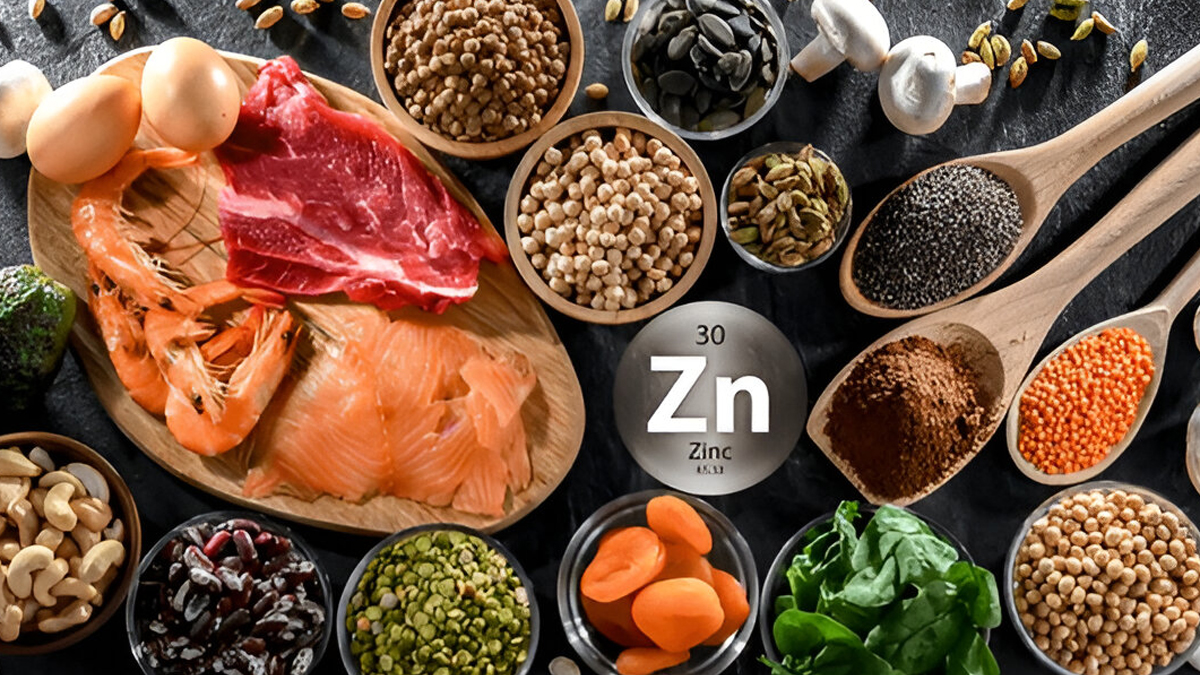
It was during the COVID-19 pandemic that loss of sense of smell and taste became a common phenomenon. In fact, they became telltale signs of the infection. However, did you know that losing your taste can mean several other things, including a zinc deficiency? Zinc is a vital nutrient that plays several roles in the human body. It is essential for immune function, cell growth and division, DNA and protein synthesis, wound healing, and proper taste and smell.
Table of Content:-
The OnlyMyHealth team spoke to experts to understand the link and find ways to tackle it.
How Zinc Deficiency Affects Taste Buds

According to Dr Ravi Malik, MBBS, MD (Paediatrics), MAMC Founder and Medical Director, Malik Radix Healthcare (MRHC), zinc deficiency, or a low amount of zinc in the body, can reduce one's ability to taste or may distort it, causing metallic or altered flavours.
He explained, "Zinc is essential for regenerating taste buds and for the enzyme carbonic anhydrase 6 in saliva, which plays a key role in taste perception. Without enough zinc, this enzyme’s function drops, leading to taste changes."
Also Read: Reasons Why Zinc Is Crucial For Kids During The Summer Season
Sheetal Yadav, Nutrition and Wellness Expert, Reaviva Holistic Health, Mumbai, shared, "Zinc is the silent architect of taste: it upholds the structure of taste‑bud cells, fuels gustin, a zinc-containing protein, and keeps the communication line from tongue to brain clear. When zinc dwindles, gustin levels drop, taste-bud microarchitecture weakens, and nerve signalling falters, leading to a dulled sense of taste."
A 2020 study explored a possible link between COVID-19 and zinc deficiency, focusing on symptoms like loss of taste. Researchers noted that more than half of COVID-19 patients in one small study had low zinc levels, though it’s unclear whether the virus causes the deficiency or if it existed beforehand. Zinc is vital for immunity, taste, and male reproductive health, and while it has shown some antiviral effects in lab studies, evidence from common cold research is mixed — with benefits only seen if taken within 24 hours of symptoms starting.
How To Know If Loss Of Taste Is Due To Zinc Deficiency

“Checking serum zinc is your starting point,” Yadav said, adding, “Clinically, levels under 66 ug/dL for women and 70 ug/dL for men raise red flags. If low, a carefully monitored zinc repletion often brings taste back within weeks.”
Additionally, look for accompanying signs of zinc deficiency, such as:
- Metallic/bland taste
- Decreased appetite
- Irritability
- Slow wound healing
- Frequent infections, especially if you are on medications like ACE inhibitors, PPIs, or diuretics.
“However, taste loss can also be due to other causes (viral infections, neurological disorders, nasal issues, vitamin B12 deficiency), so a doctor’s evaluation and possibly a blood zinc test are needed before self-medicating,” Dr Malik noted.
What Causes Zinc Deficiency?
Some of the factors that can lead to zinc deficiency include:
- Following a diet lacking zinc-rich foods (especially strict vegetarian/vegan diets)
- Pregnancy, lactation, rapid growth in children, major surgeries, stress
- Malabsorption syndromes, chronic diarrhoea, Crohn’s, ulcerative colitis, coeliac disease, chronic liver/kidney disease
- Chronic alcoholism, dialysis
- Genetic disorders like acrodermatitis enteropathica
- Medications like diuretics, ACE inhibitors, proton pump inhibitors, antacids, certain antibiotics (tetracyclines, quinolones), and corticosteroids
Also Read: Why Pregnant And Lactating Women Need More Zinc In Their Diet
How To Prevent Zinc Deficiency

A balanced diet is key to fighting any form of nutrient deficiency. When it comes to preventing zinc deficiency, here are your options:
- Animal sources: oysters, red meat, chicken, eggs, dairy (milk, yoghurt, cheese)
- Plant sources: pumpkin seeds, cashews, lentils, chickpeas
These can help replenish zinc naturally. If levels are very low, a doctor may prescribe 20–40 mg of elemental zinc daily as supplements.
Conclusion
While a temporary loss of taste is usually harmless and can be caused by common issues like a cold or the flu, it can also be a symptom of more serious conditions. If it is a consequence of zinc deficiency, look for other symptoms of zinc deficiency or get tested for the same. It's generally a good idea to consult with a healthcare professional, especially if the loss of taste is sudden, persistent, or accompanied by other symptoms.
Also watch this video
How we keep this article up to date:
We work with experts and keep a close eye on the latest in health and wellness. Whenever there is a new research or helpful information, we update our articles with accurate and useful advice.
Current Version
